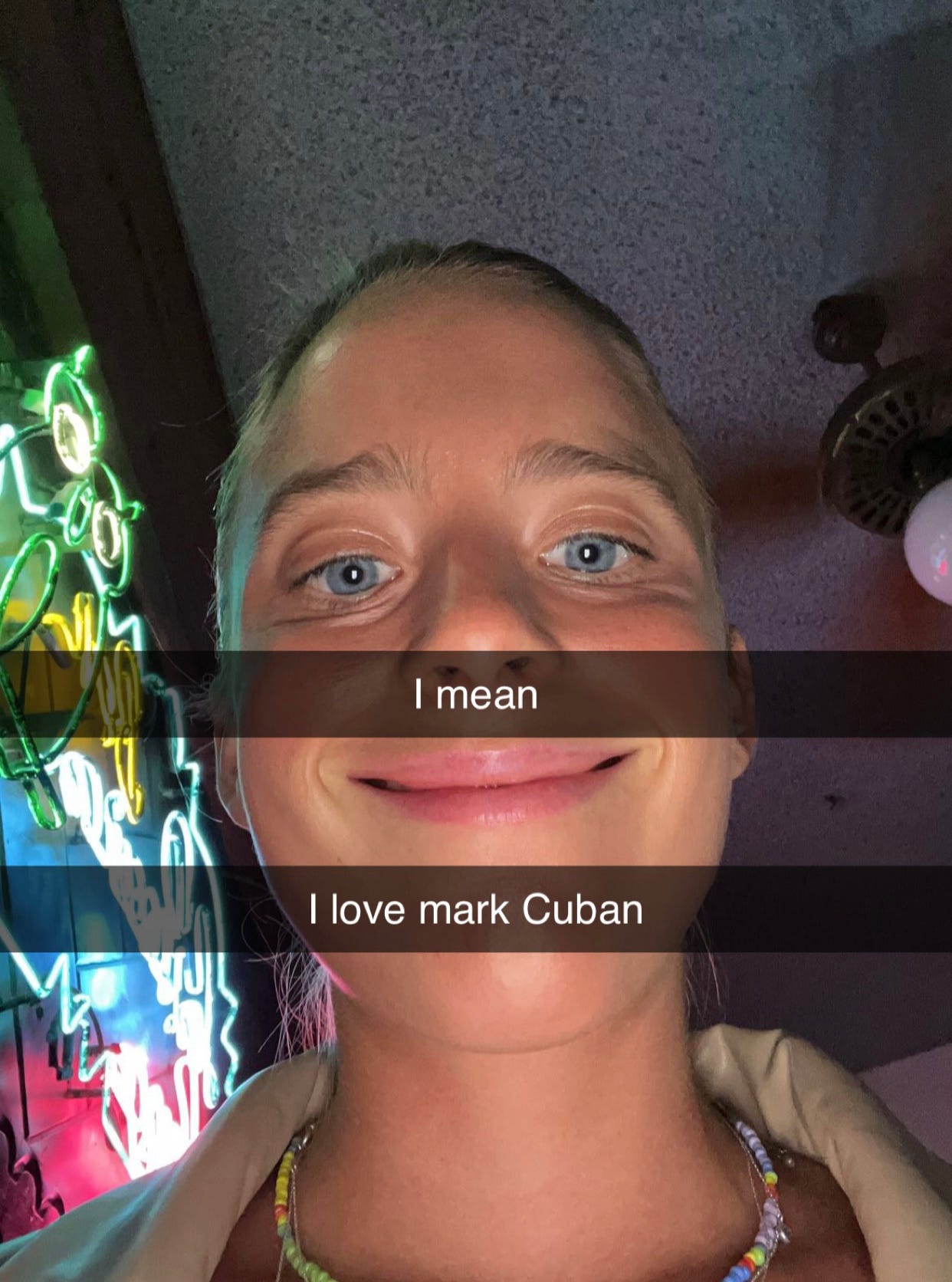Snapchat heard it first. ^
I love Mark Cuban. I love reputational luck. And I love venture capital.
The year is 2022.
And I never really kept up with the Kardashians.
But the way we buy is changing. And the way we sell needs to change with it. I love social media - the creator economy, economies of scale, network effects. (I never post, but I get it). Consumer trends are fascinating, and TikTok makes the right people famous.
Okay.
The year is 2023.
And I wanna talk about Shark Tank. It’s like venture capital, and it started in 2009. Not every business is designed for VC, but raising money helps with things like distribution, runway, and talent.
Access is coupled with success, and social media democratizes access. It’s never been easier to complete a transaction (Stripe). To open a storefront (Amazon). To launch a business (Shopify). You no longer need to live in Hollywood or have the right last name to build an audience.
You just need to ask yourself -
Am I building a business or a newsletter? (For me, it’s the latter). HOWEVER. It’s totally possible to monetize an audience with a targeted product or service.
There are so many ways to raise capital, so many ways to build an audience, and so many ways to learn.
And that wasn’t always the case! (Like in 2009).
Which is why I’m talking about Shark Tank. It was the first show to really personalize products and their founders. Most importantly, it increased reach.
Founders could go on, walk away without a deal, and still watch their sales multiply. (Like Ring Doorbell).
The year is 2013. And Jamie Siminoff happens to take a lunch meeting with a guy who knows a Shark Tank producer.
Jamie needs capital & to go viral.
He recently raised $250K for Ring’s prototype. (Which, BTW, isn’t a lot of runway for a product that requires both hardware and software). Jamie needs to hire engineers, find a supplier in China, spin up servers, etc.
In a lot of ways, Jamie gets lucky.
He films his Shark Tank episode in September 2013, and it airs in November 2013. Keep in mind that this is television, so there’s no guarantee when it will air or if it will air. (And it happens to run right before Christmas - resulting in millions of dollars of sales).
And yes, OF COURSE there’s more to Ring & Jamie Siminoff than Shark Tank.
But Shark Tank is the first show in the digital age to meet consumers where they’re at (online & with their iPhones).
Consumers can complete a transaction during the show.
Okay.
The year is 2016.
Allison Ellsworth and her husband start Mother Beverage (now called Poppi) at a Farmer’s Market in Dallas, where a Whole Foods buyer falls in love and shelves it. Allison quits her job in oil & gas, opens a production facility, and goes all in. Healthy products aren’t big in Texas, so Poppi sticks out like a sore thumb.
After two years and $500K in revenue, Allison applies for a casting call to Shark Tank.
They reach a deal with Rohan Oza for $400K in exchange for 25% equity. (That’s an insane amount of equity). But Shark Rohan Oza was an early investor in Smartwater and Bulletproof coffee. And he helps a lot in the rebrand of Mother to Poppi.
Poppi’s episode airs in March 2020. (Which, yes… COVID, but also, the start of social media funnels).
Allison understands the importance of education in the pre-biotic drink category, the influence of influencers, and Amazon. I think a lot about the algorithms social platforms are built on and how to gamify them. Allison makes a TikTok in early 2021 about her Shark Tank experience that drives $100K in sales on Amazon in one day.
You can’t track the success of a billboard, but you can track the success of a social media campaign.
Which brings me to my favorite behavioral change - reputational luck.
It’s what happens when you have access to something simply due to your reputation.
Historically, the best venture capitalists have access to the best deals. Now - knowledge is at our fingertips. Shark Tank is a funnel for customer acquisition through social media. And social media is a funnel for knowledge. The bigger your “following,” the bigger your reputational luck. (Poppi and Ring benefit a lot from reputational luck. Both founders built brands, not products).
So take one from Jamie Siminoff and Allison Ellsworth. And say yes to random lunch meetings.
And that’s the skinny.
Allison’s viral TikTok^




